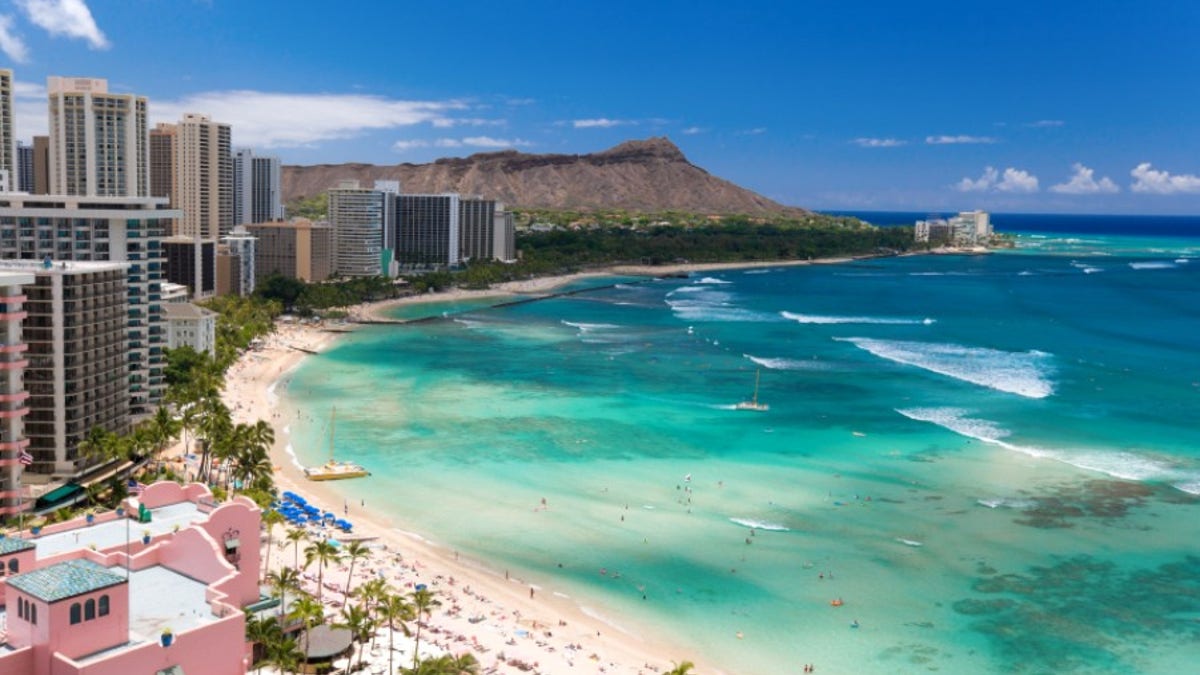
waikiki diamond head resort beach in honolulu hawaii (iStock)
Saturday's missile-attack warning in Hawaii turned out to be a false alarm -- but it was still a red alert for the state's tourism industry.
Soon after the temporary crisis abated, efforts were already underway to quell unease about Hawaii’s security -- and reassure travelers that the state remained a safe destination, the Honolulu Star-Advertiser reported.
Official figures aren't expected until the end of January, but 2017 was expected to set records for generated state tax revenue, visitor spending and visitor arrivals, George Szigeti, president and CEO of the Hawaii Tourism Authority, wrote in the Garden Island earlier this month.
Tourism supports some 200,000 jobs in the state, he added.
With that kind of economic activity at stake, Szigeti told reporters that he has reached out to industry stakeholders to make sure that events like Saturday's false alarm never happen again.
“Hawaii is open for business and is still perceived as the most safe and welcoming destination in the world,” he said, according to the Star-Advertiser.
"Hawaii is open for business and is still perceived as the most safe and welcoming destination in the world."
Kelly Sanders, area general manager of Marriott Hawaii, told the paper it wasn't immediately clear how Saturday’s event would affect tourism in the long term, but vacation and convention cancellations were possible in the short term.
Mufi Hannemann, president and CEO of the Hawaii Lodging & Tourism Association, told the paper that the group's members were being canvassed, “to determine the short-term and longer-term ramifications of the false alarm.”
Hannemann added that Hawaii needs to work together to avoid repeating the same mistake.
“We want to make sure that people don’t get complacent," he said, "and continue to take this seriously.”




















